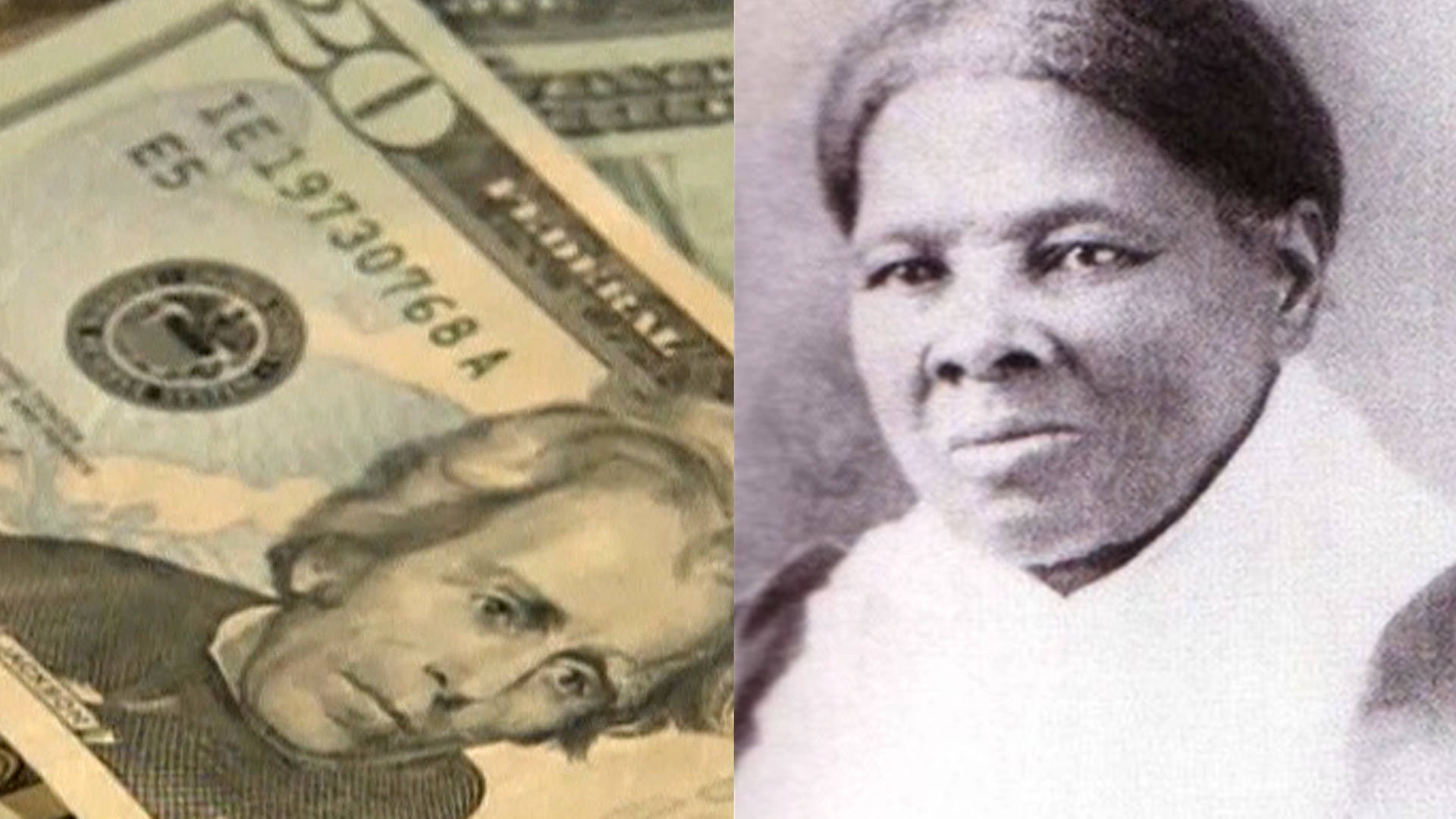
This is a rush transcript. Copy may not be in its final form.
AMY GOODMAN: This is Democracy Now! I’m Amy Goodman, with Nermeen Shaikh.
NERMEEN SHAIKH: The Trump administration is facing criticism after scuttling plans to replace President Andrew Jackson’s portrait on the $20 bill with abolitionist leader Harriet Tubman by 2020, the hundredth anniversary of women being granted the right to vote. Massachusetts Democrat and freshman Congressmember Ayanna Pressley questioned Treasury Secretary Mnuchin last week.
REP. AYANNA PRESSLEY: Do you support Harriet Tubman being on the $20 bill?
TREASURY SECRETARY STEVEN MNUCHIN: I’ve made no decision as it relates to that, and that decision won’t be made, in, as I said—
REP. AYANNA PRESSLEY: But there was a community process.
TREASURY SECRETARY STEVEN MNUCHIN: —until most likely 2026.
AMY GOODMAN: We go now to Boston, where we’re joined by Kate Clifford Larson, the author of Bound for the Promised Land: Harriet Tubman, Portrait of an American Hero.
Talk about what the plan was, Kate Clifford Larson, for replacing Harriet Tubman, who Harriet Tubman is, and what’s happened.
KATE CLIFFORD LARSON: Well, in April of 2016, then-Secretary of the Treasury Jacob Lew announced that the $5, $10 and $20 notes would be redesigned to incorporate women into those designs onto our currency. And on the $20 note, he announced that Harriet Tubman would replace Andrew Jackson.
And, of course, we were all thrilled, because there had been a process. People had voted across the country. A group of women had gotten together and started Women on the 20 campaign. And overwhelmingly, Americans voted for Harriet Tubman to be the face of the $20 bill. And the design was started, and we were thrilled that the process was moving ahead.
And once President Trump was brought into office, and then the process seemed to slow down, and now this recent announcement from Secretary Mnuchin that that decision won’t be made now, it will be put off into the future. But, actually, the decision was made, and the process was started, and the design is available. So, we’re all very, very frustrated, because it’s time that a woman is on our currency.
AMY GOODMAN: And explain who Harriet Tubman is, her history, her life.
KATE CLIFFORD LARSON: Harriet Tubman is a remarkable human being and American hero. She was born enslaved on the Eastern Shore of Maryland in 1822, had a horrific childhood of being separated from her family and hired out to other slaveholders. She was brutally beaten and neglected and starved. But she survived, and she grew up to be a remarkable, remarkable, strong, brilliant woman, who took her own liberty—she escaped from slavery—and then she returned well over—you know, about 13 times to rescue her family and friends. I mean, nobody did that. It was so dangerous. And then, during the Civil War, she was a spy and a scout and a soldier. And so she brought her battle against slavery to the South, and she helped win. And later in her life, she was a civil rights activist, an activist fighting for the right to vote. She deserved to vote, and it was denied her. She was a humanitarian and just a remarkable human being.
And her legacy lives on. I mean, people never forgot who she was. She was famous during her lifetime, and she’s even more famous today. And I think that people see in her what we, as Americans, hold so dearly. And that’s the fight for freedom, that we represent freedom to people around the world who are oppressed. She represents that in so many different ways. And it’s about time that our heroes are represented across gender and race, not just white men, on our currency. We need to have women there, and Harriet Tubman is truly the best representation of that.
AMY GOODMAN: And she would be replacing Andrew Jackson, the president who President Trump has called his favorite. He was a slaveholder who, in 1830, signed the Indian Removal Act, which forced 16,000 Native Americans from their lands in what became known as the Trail of Tears. Your response?
KATE CLIFFORD LARSON: It’s very confusing that he would feel that Andrew Jackson deserved to be on the $20 bill, especially when we have an opportunity to have someone like Harriet Tubman, who actually fought for the freedom for all people, not to subjugate them and rip them from their homes. So, I do find it very telling about President Trump and his administration. I feel that the decision that they’ve made to put this on hold is rooted in misogyny and racism.
AMY GOODMAN: Kate Clifford Larson, we’re going to do Part 2 and put it online at democracynow.org. Thanks so much for joining us. I’m Amy Goodman, with Nermeen Shaikh. Thanks for joining us.
Read More
Post a Comment